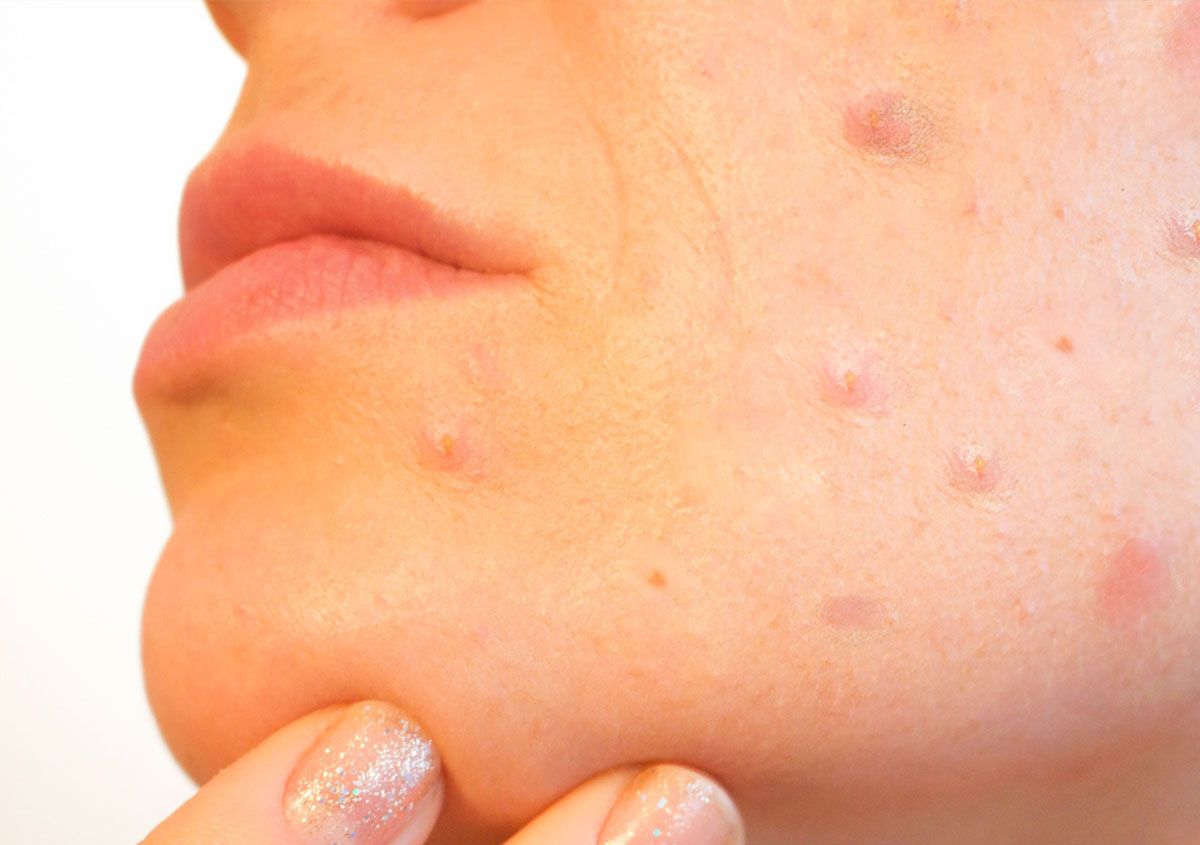
01
Nov
Good Riddance to Pesky Acne!

What is acne?
Acne is a chronic skin condition affecting both hair follicles and sweat glands, otherwise known as sebaceous glands. Acne can be extremely frustrating and stressful to deal with, but it is treatable. According to the American Academy of Dermatology, acne is considered the most common skin condition in the United States affecting approximately 50 million Americans each year. Although acne is commonly seen in adolescents, it can be diagnosed in any age group. If acne is left untreated for a long period of time, it can lead to disfigurement of the face with permanent scarring.
What causes acne?
Although the exact mechanism behind acne is less understood, the primary contributing factors include activation of the body’s inflammatory pathways, a familial predisposition, bacterial overgrowth of P. acnes, overproduction of sebum, occlusion of hair follicles, and androgenic imbalance.
Androgens are male sex hormones that are also produced in smaller amounts by females. Excessive amounts of androgens, specifically testosterone, worsen inflammation and trigger acne outbreaks by increasing the secretion of oil from the sebaceous glands.
What causes breakouts?
Diet. Numerous studies conducted over the years demonstrate that diet plays a key role in acne exacerbations. Foods with a high glycemic index tend to worsen acne due to spikes in blood sugar, which signal for activation of inflammatory pathways and increase production of sebum. Research has shown that incorporating diets low in sugar resulted in fewer acne breakouts. Foods containing cow’s milk have also been shown to worsen acne, although the exact mechanism of action is not understood.
Products. Skincare products and makeup are an often-overlooked contributor to acne. Many of us are not aware of the ingredients in the products that we use every single day. Skincare products can occlude skin pores and hair follicles. The occlusion causes a buildup of oil and dead skin cells, which feed the bacteria and facilitate overgrowth.
What can I do?
Lifestyle changes are a great way to get started. Some of these changes may require work on your part, but they can improve your acne significantly. Adjusting your diet to include more fruits and vegetables, fewer dairy products, and fewer foods high in sugar content can be beneficial.
Use of skincare products and makeup are encouraged, as long as the products are labeled as non-comedogenic. What this means is that the products will not clog your pores. Utilizing a gentle facial cleanser with the addition of benzoyl peroxide or salicylic acid can be very beneficial by oxidizing bacterial proteins in clogged pores and decreasing the bacterial count.
If you have tried many different treatments in the past to no avail, your acne may partially be caused by elevated androgens. This can result from an underlying medical condition, the use of oral contraceptives containing high androgenic progestins, or contraceptive devices/methods (i.e. IUDs) that cause shifts in hormone levels.
If you have been unsuccessful in treating your acne with home remedies and over-the-counter products, it is recommended to see a board-certified dermatologist in order to determine the cause and treat it properly.

